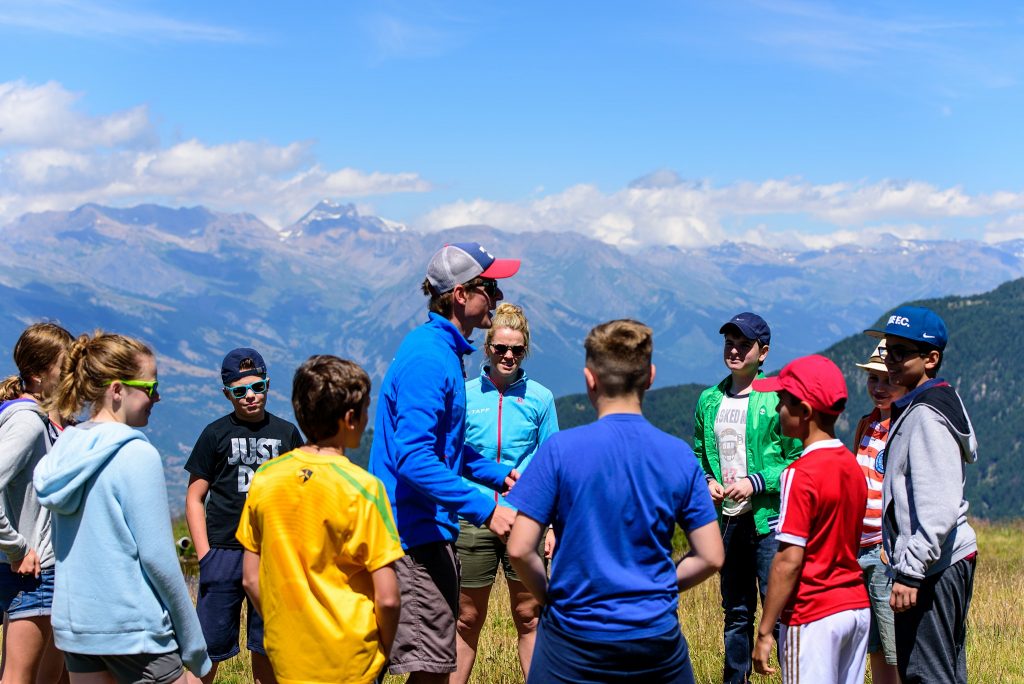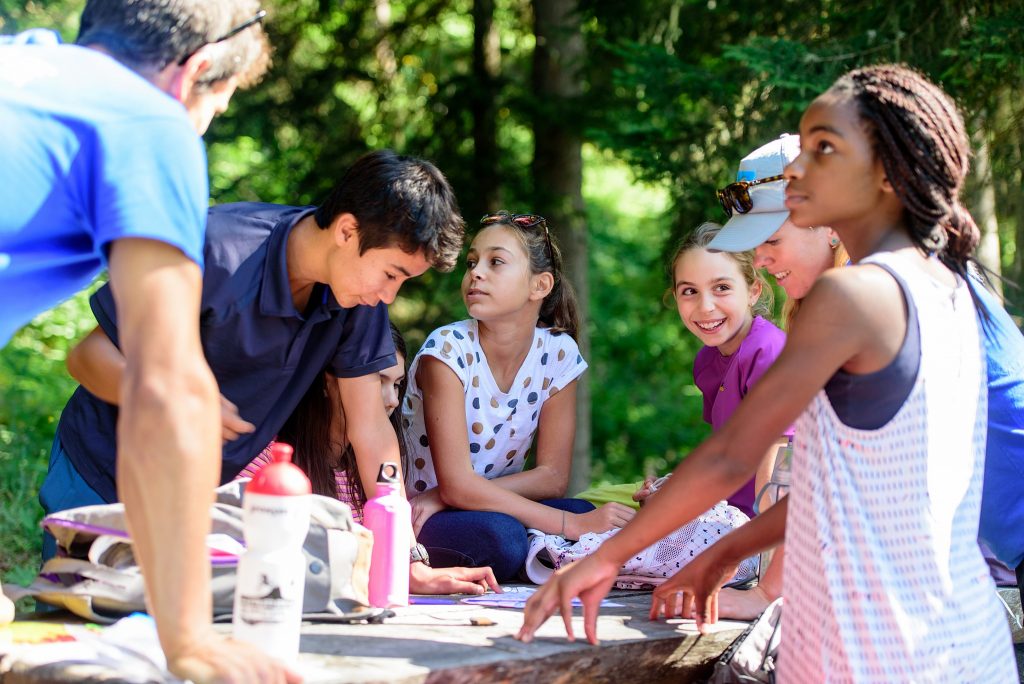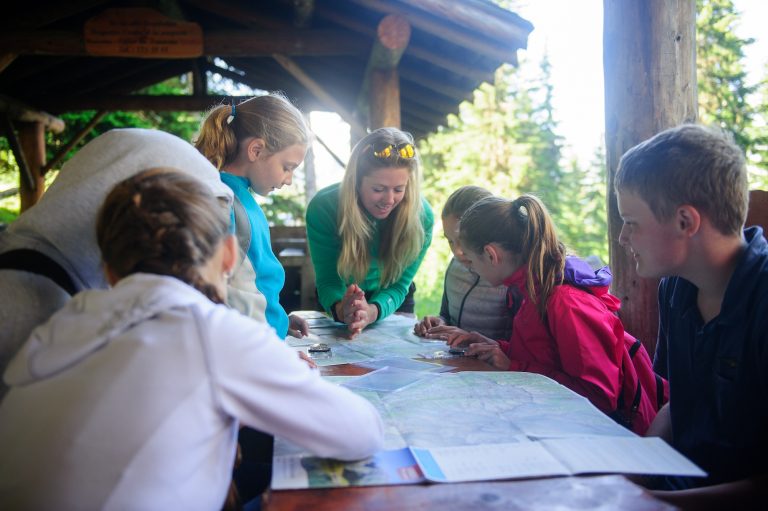There has been a great deal of recent scientific and media interest in the relationship between children and the natural environment, with fears that the increasing use of technology and a generational change in the attitudes toward outdoor play have led to a severe disconnect between our children and the great outdoors.
We explore some of the most recent evidence on the subject, and how important getting out and into nature really is to your child or teenager.
So, what are the facts?
In a recent article, The Guardian published that on average, three-quarters of UK children are now spending less than an hour playing outdoors each day, based on an independent study by Persil’s ‘Dirt is Good’ campaign. The UK is not alone in this however, with other countries across the world showing similar trends, and studies in the USA also releasing figures that their children are now spending an average of 7 hours 40 minutes ‘screentime’ per day.
The UK Government have expressed their ambitions ‘for every child to be able to experience and learn in the natural environment’. As part of research toward accomplishing this target, a 2-year pilot study released in 2016 found 12% of children in England had not visited a natural environment over the last year, and far less visit more than once a week. Only 8% of children visited with their school, and 22% visited without adult supervision.
These results indicate that the responsibility now lies with parents to make sure they are getting their kids outdoors, indicating a generational shift from 30 years ago when children used to play outside with friends, exploring parks, woodlands or the countryside with little or no adult supervision.
The result of this increasing disconnect from outdoor environments has lead to a disconnect from nature itself. In 2013, the RSPB published a three-year study, which concluded that 80% of children are not adequately connected to nature. Whether children were living in urban or rural environments seemed to have little impact on the figures, and in fact children in London were more connected to nature than those living in Wales.

Should we be concerned?
So, why are the government and other organisations so worried about children spending less time outdoors?
The reality is that nature is seen to have such great advantages to overall health and well-being, that the term ‘nature defecit disorder’ has actually been coined by Richard Louv in his book ‘The Last Child in the Woods’, a book which outlines some of the major benefits for children to have a strong connection with nature.
It has been established that spending time in natural environments is something required not only for a child’s mental health and wellbeing, but also their physical and physiological development, and deprivation of these environments is causing development issues in the younger generation.
“Teaching children about the natural world should be seen as one of the most important events in their lives” – Thomas Berry
We took a look at the findings of the latest research into the benefits of nature, to see why nature really is so important to children in more ways than one:
Nature contributes to the development of children’s sensory systems
From the tactile experience of squelching through mud to developing spatial awareness from hearing birdsong in the trees around them, nature leads to the development of children’s sensory systems, and the development of their core strength, coordination and balance.
In fact, nature is so important to this aspect of development that deprivation of exposure to natural environments can actually cause sensory development issues, such as a decreased tolerance to touch, noise, and temperature.

Time spent in natural environments can help prevent behavioural issues in children
It has been shown that restricted movement throughout the day, and not enough active play leads to poor development of the middle ear complex, which leads to these balance problems and reduces the brains ability to use the ears and eyes efficiently.
As a result, children will find it near impossible to learn, and to concentrate for periods of time. It is even believed that this may be leading to the increase in ADHD amongst children, and that literally prescribing time to be spent outdoors in natural environments could be a solution to treating the condition drug-free.
Nature stimulates intellectual development and a love and empathy with the natural world
Introducing children to nature at a young age leads to a greater understanding and responsibility for the natural world.
Stephen R. Kellert, School of Forestry and environmental studies at Yale University has stated that ages 6-12 is a time when children are most likely to be interested in and understand the natural world.
“Intellectual development at this stage is especially facilitated by direct contact with nearby natural settings, where a world of exploration, imagination and discovery becomes increasingly evident to the child”.
In a world where climate change, environmental disasters, widespread habitat destruction and what could be the 6th major extinction event the planet has ever seen threaten our planet as we know it, instilling a love and connection to nature in our children could be the most important gift we give to their generation to enable them to protect our earth and their future.
Activities outdoors lead to the improvements of key skills such as confidence and decision making
A meta-analysis of data from 96 studies has shown that children who spend time taking part in outdoor adventure programmes also show significant improvements in independence, confidence, self-efficacy, self-understanding, assertiveness, internal locus of control and decision making as a result.
Natural environments teach risk management
Nature provides a playground in which children can be active, explore and learn. Letting children experience more risky activities outdoors, such as adventurous play equipment or something as simple as climbing a tree, has been shown to be important to the development of risk management for a child, helping them manage their own decision making processes and learn about risk and reward as well as teaching perseverance and resilience.
Your child and nature
The combination of modern day technology, an increased social pressure for parental supervision and extra-curricular activities, and with children in school for approximately 8 hours a day, there is now a responsibility for parents to ensure that nature is something they incorporate into their children’s childhood.
After school is a great time to be able to make use of local rural environments and parks, and the school holidays is a great time for children to experience nature may be further away from their homes.
Summer camps can help grow your children’s love for nature
Summer camps can provide the perfect experience for children to explore outdoors, with supervision by staff who are both trained and responsible for your child’s wellbeing but also don’t represent parental figures, so children have more independence and an opportunity to explore themselves.
When choosing a summer camp programme for your child, we would recommend finding a programme that provides a significant amount of outdoor activities each day. If you opt for an academic-based programme, make sure that either the mornings or afternoons are dedicated to sports, excursions, or other forms of outdoor exercise.
Alternatively, outdoor-based learning and adventure programmes are perfect for helping children and teenagers to learn new skills, stay active and learn an appreciation and connection with their natural environment.
A camp set in a safe, rural environment is an ideal option to ensure children experience the outdoors even when taking parts in sports and other activities, and gives young children the freedom to explore and play in an outdoor environment which may not be possible at home.
Unstructured play is also often a very important component that is often overlooked. Children need ideally at least an hour if not more of unstructured play each day in order to practice social and play skills, use their imagination and challenge their bodies. This is usually represented by ‘free time’ at camp, so make sure that you don’t overlook the importance of this time when looking at a camp programme.
References and further reading
http://www.theguardian.com/environment/2016/mar/25/three-quarters-of-uk-children-spend-less-time-outdoors-than-prison-inmates-survey
https://www.gov.uk/government/uploads/system/uploads/attachment_data/file/498944/mene-childrens-report-years-1-2.pdf
http://www.huffingtonpost.com/ben-klasky/our-children-deserve-as-m_b_4791244.html
https://www.rspb.org.uk/Images/connecting-with-nature_tcm9-354603.pdf
http://www.childrenandnature.org/2016/04/11/release-of-vitamin-n-the-essential-guide-to-a-nature-rich-life/
http://www.englishoutdoorcouncil.org/wp-content/uploads/Change.pdf
http://www.growinghandsonkids.com/vestibular-system-affects-childs-behavior.html
http://www.ourkids.net/kids-need-nature.php



